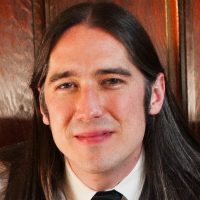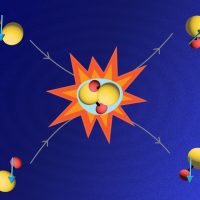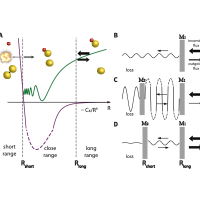- P. Barral, M. Cantara, L. Du, W. Lunden, J.Hond, A. Jamison, and W. Ketterle. Suppressing dipolar relaxation in thin layers of dysprosium atoms. Nature Communications, 15(3566), April 2024.
- P. Barral, M. Cantara, L. Du, W. Lunden, J.Hond, A. Jamison, and W. Ketterle. Suppressing dipolar relaxation in thin layers of dysprosium atoms.. Nature Communications , 15(3566), 2024.
- J. Park, Y. Lu, A. Jamison, T. Tscherbul, and W. Ketterle. A Feshbach resonance in collisions between triplet ground state molecules. Nature, 614(5458), 2023.
- J. Park, H. Son, Y. Lu, A. Jamison, W. Ketterle, T. Karman, M. Gronowski, and M. Tomza. Ab initio calculation of the spectrum of Feshbach resonances in NaLi + Na collisions. Phys. Rev. A , 108(023309), 2023.
- J. Park, Y. Lu, A. Jamison, and W. Ketterle. Magnetic trapping of ultracold molecules at high density. Nature Physics, 19, 2023.
- J. Park, H. Son, Y. Lu, A. Jamison, W. Ketterle, T. Karman, M. Gronowski, and M. Tomza. Spectrum of Feshbach resonances in NaLi + Na collisions. Phys. Rev. X, 13(031018), August 2023.
- H. Son, J. Park, Y. Lu, A. Jamison, W. Ketterle, and Tijs Karman. Control of reactive collisions by quantum interference. Science, 375(6584), March 2022.
- W. Ketterle and A. Jamison. An atomic physics perspective on the kilogram’s new definition. Physics Today73, (5):32, May 2020.
- H. Son, J. Park, W. Ketterle, and A. Jamison. Collisional Cooling of Ultracold Atoms. Nature, 580(197), April 2020.
- W. Lunden, L. Du, M. Cantara, P. Barral, A. Jamison, and W. Ketterle. Enhancing the capture velocity of a Dy magneto-optical trap with two-stage slowing. Physical Review A, 101(063403), June 2020.
- B. Shteynas, J. Lee, F. Top, J. Li, A. Jamison, W. Ketterle, and G. Juzeliūnas. How to dress radio-frequency photons with tunable momentum. Physical Review Letters, 123(033203), July 2019.
- J. Li, J. Lee, W. Huang, B. Shteynas, F. Top, A. Jamison, W. Ketterle, and S. Burchesky. A stripe phase with supersolid properties in spin–orbit-coupled Bose–Einstein condensates. Nature, 543(91), March 2017.
- T. Rvachov, H. Son, A. Sommer, J. Park, M. Zwierlein, W. Ketterle, A. Jamison, and S. Ebadi. Long-Lived Ultracold Molecules with Electric and Magnetic Dipole Moments. Phys. Rev. Lett. October 2017.
- J. Li, W. Huang, B. Shteynas, F. Top, E. Su, J. Lee, A. Jamison, and W. Ketterle. Spin-Orbit Coupling and Spin Textures in Optical Superlattices. Phys. Rev. Lett. , 117(185301), October 2016.
Wed March 9, 2022
Physicists steer chemical reactions by magnetic fields and quantum interference
News type:
Tue October 10, 2017 4:00 pm
Triple Feature
Location:Harvard Jefferson 250
Event type:
Fri April 20, 2018 2:00 pm
Location:MIT 26-214 and 26-210
Event type:


